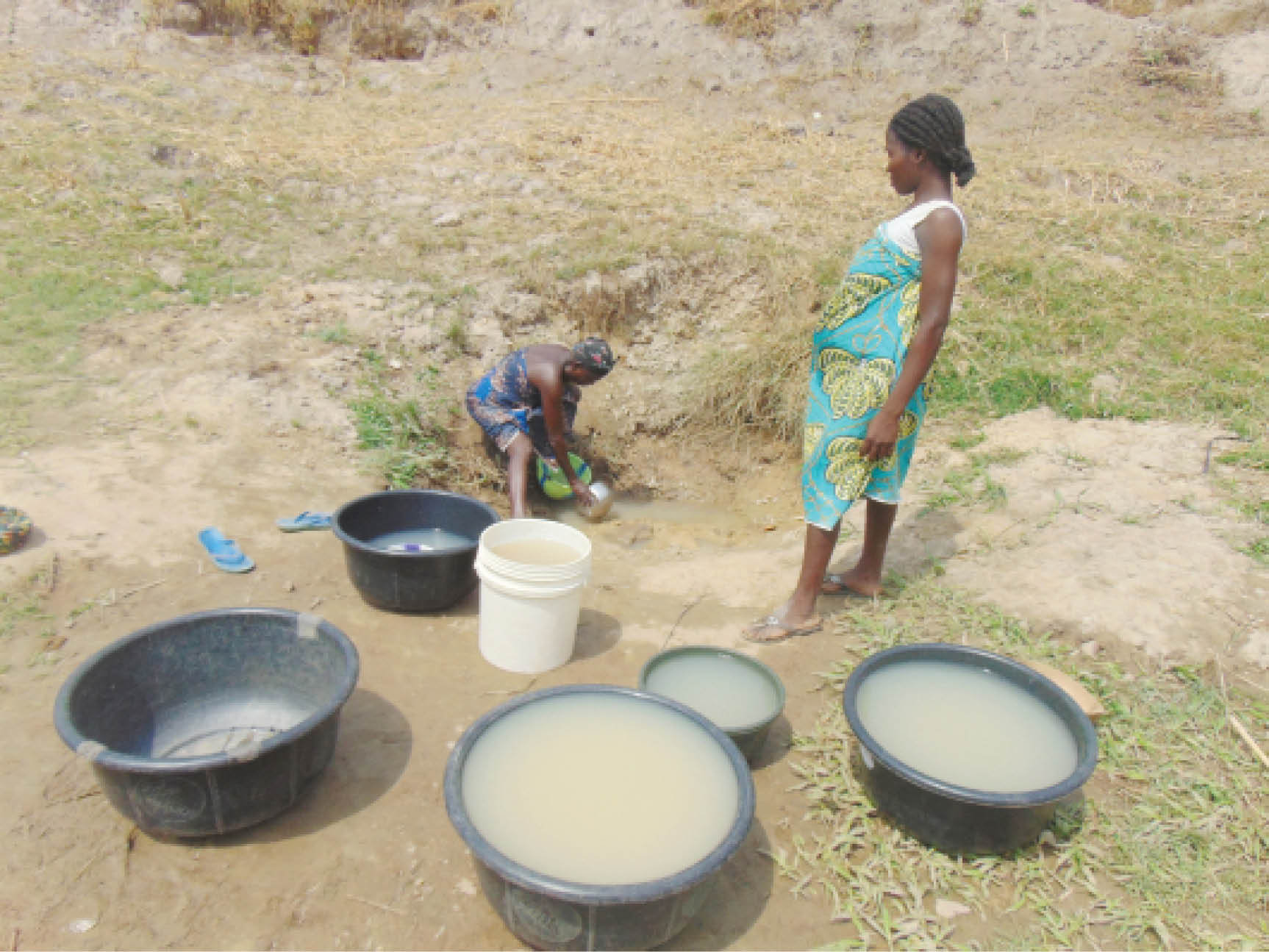Statistics from the Federal Ministry of Water Resources and other relevant bodies have shown that more than 60 million Nigerians still cannot access potable water.
Now, medical experts are warning that many Nigerians, especially those in rural communities, will continue to battle water-related ailments if decisive actions are not taken to fix the country’s water supply system.
- Davido to feature as taxi driver in Hollywood movie
- Burna Boy: If Not For Nigerian Leaders, I Would Have Won Grammy Years Ago
The United Nations Children and Education Fund (UNICEF) said over 100,000 children under-five die from water-borne diseases annually in the country. Adults are not exempted from cholera outbreaks and other water-related diseases that have claimed scores of people.
While speaking on the types of water-borne diseases that have claimed many lives, medical experts, Dr E. Clement of Bolpraize Hospital, Niger State warned against unsafe water situation.
Water-borne diseases are illnesses caused by microscopic organisms, like viruses and bacteria, that are ingested through contaminated water or by coming in contact with faeces.
He said people who drink from ponds, as is usually the case in some rural communities, are likely to suffer schistosomiasis, a disease caused by parasitic flatworms called schistosomiasis.
According to him, the urinary tract or intestines may be infected, adding that the symptoms include abdominal pain, diarrhoea, bloody stool, or blood in the urine.
The doctor also warned that those who drink from the stream, or untreated water, which is also common in some settlements in Nigeria, may suffer cholera, which he described as an infectious disease that causes severe watery diarrhoea, which can lead to dehydration and even death if untreated.
He said sources of water for settlements close to mountains may be exposed to fluoride, which may cause an illness known as fluorosis, which causes the teeth of its victims to be yellow.
Dr. Clement listed other water-related ailments to include typhoid fever, giardiasis, dysentery, salmonella among others.
Nigeria is surrounded by water bodies. The country has more than eight rivers, over 13 lakes including Shiroro and Kainji, and over 11 freshwaters.
Despite these, there is an abundant shortage of safe drinking water for over 160 million people in the country.
This year’s World Water Day, themed ‘Valuing water’, celebrated on March 22, is to raise awareness of the global crisis.
“The value of water is about much more than its price – water has enormous and complex values for our households, food, culture, health, education, economics and the integrity of our natural environment. If we overlook any of these values, we risk mismanaging this finite, irreplaceable resource,” a statement released ahead of the celebration by the Food and Agriculture Organisation of the United Nations read.
There are several plans for the provision of safe water for Nigerians. The Vision 20:2020 and Millennium Development Goals (MDGs) are a few of these plans that are yet to meet the water needs of Nigerians.
The unavailability of safe water makes residents resort to streams, rivers and other unsafe means.
This has led to the death of many Nigerians while more than 60 million Nigerians who do not have access to clean water might be at risk.

 Join Daily Trust WhatsApp Community For Quick Access To News and Happenings Around You.
Join Daily Trust WhatsApp Community For Quick Access To News and Happenings Around You.


